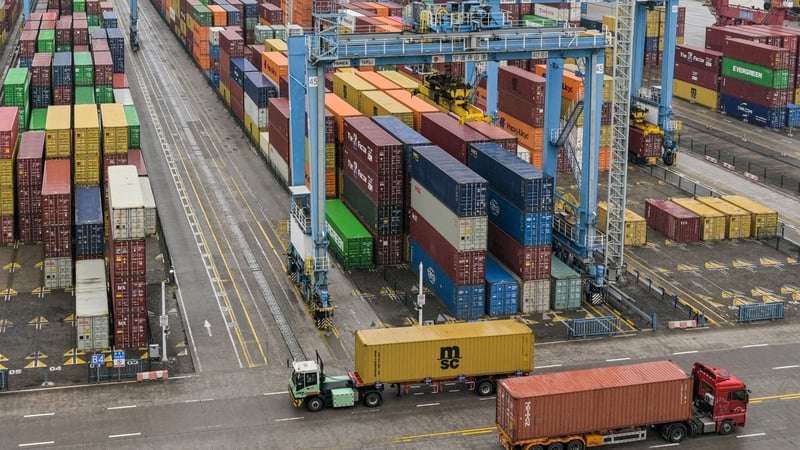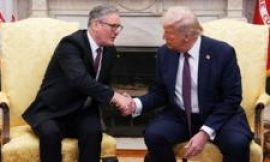Updated / Friday, 30 May 2025 17:32

US President Donald Trump signalled renewed trade tensions with China, arguing that China had “violated” a deal to de-escalate tariffs, at a time when both sides appeared deadlocked in negotiations.
Mr Trump’s post on his Truth Social platform came hours after US Treasury Secretary Scott Bessent said that trade talks with China were “a bit stalled,” in an interview with broadcaster Fox News.
The world’s two biggest economies had agreed this month to temporarily lower staggeringly high tariffs they had imposed on each other, in a pause to last 90 days, after talks between top officials in Geneva.
However, Mr Trump wrote that, “China, perhaps not surprisingly to some, HAS TOTALLY VIOLATED ITS AGREEMENT WITH US,” without providing further details.
Asked about the post on CNBC, US Trade Representative Jamieson Greer took aim at China for continuing to “slow down and choke off things like critical minerals.”
He added that the United States’ trade deficit with China “continues to be enormous,” and that the US was not seeing major shifts in China’s behaviour.
“The Chinese are slow-rolling their compliance, which is completely unacceptable,” Mr Greer said.
Yesterday, Mr Bessent suggested that Mr Trump and his Chinese counterpart Xi Jinping could get involved in the situation.

Mr Bessent said there could be a call between both leaders eventually, a characterisation that Mr Greer agreed with.
US stock markets fell in early trading amid jitters about the China trade tensions.
The US is also in “intensive talks” with other key trading partners, Mr Greer told CNBC, saying he has meetings next week with counterparts from Malaysia, Vietnam and the European Union.
The meetings come as he heads to Organisation for Economic Cooperation and Development talks in Europe.
“The negotiations are on track, and we do hope to have some deals in the next couple of weeks,” Mr Greer said.
But Mr Trump’s tariff plans are facing legal challenges.
A trade court ruled this week that the president overstepped his authority in tapping emergency economic powers to justify sweeping tariffs.
It blocked the most wide-ranging levies since Mr Trump returned to office, although this ruling has been put on hold for now as an appeals process is ongoing.
Read more: China exempts some goods from US tariffs
The decision left intact, however, tariffs that Mr Trump imposed on sector-specific imports such as steel and autos.
Mr Greer said it was important to get through the legal process so partners have a “better understanding of the landing zone.”
Since Mr Trump returned to the presidency in January, he has imposed sweeping tariffs on most US trading partners, with especially high rates on imports from China.
New tit-for-tat levies from both sides reached three digits before the de-escalation this month, where the US agreed to temporarily reduce its additional tariffs on Chinese imports from 145% to 30%.
China, meanwhile, lowered its added duties from 125% to 10%.
The US tariff level is higher as it also includes a 20% levy that the Trump administration recently imposed on Chinese goods over the country’s alleged role in the illicit drug trade – an issue that China has pushed back against.
The high US-China tariffs, while they were in place, forced much trade between both countries to grind to a halt, as businesses paused shipments to try and wait for both governments to reach an agreement to lower the levies.




